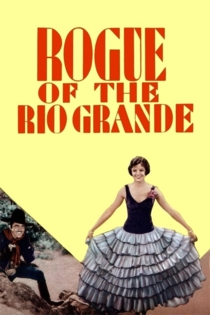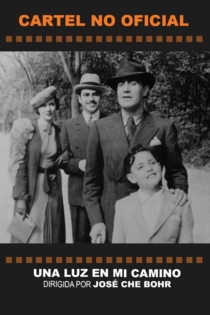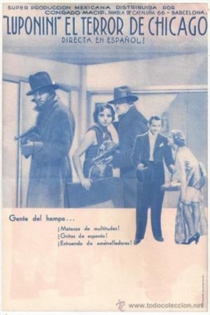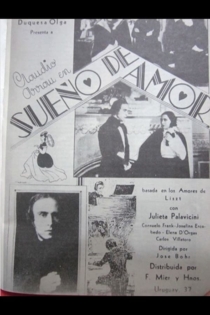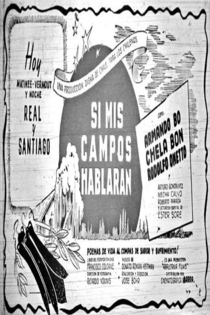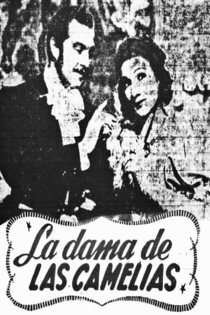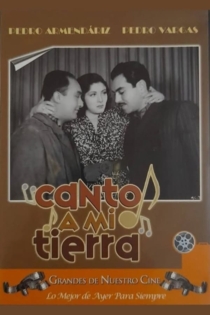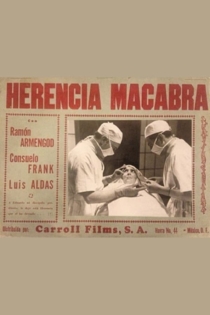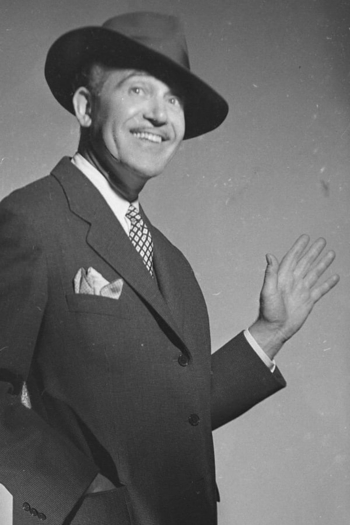
José Bohr
1901 - 1994After emigrating to Santiago in 1921, he went to Brazil, Uruguay and Argentina, hired by the Chilean Ministry of Foreign Affairs to make a documentary. Later he settled in Buenos Aires, where he composed a good part of the 200 songs that swelled the popular songbook of the time, such as "Y tenía un lunar", "Cascabelito" and "Pero hay una melena", as well as advertising tangos for music houses. He performed for the first time in the United States in 1925, starring in the musical show Gaucho at the Paramount Theater in Broadway. In this country he rubbed shoulders with the stars of the big screen, enjoying bohemian life and success. Shortly thereafter, he starred in the first Spanish-language film produced in Hollywood, Sombras de gloria, for which he received a symbolic Oscar, since the category of best foreign film did not yet exist.
In Mexico, where he moved in 1932 and became friends with renowned artists such as Luis Buñuel, Cantinflas and Jorge Negrete, he became one of the pioneers of cinema, shooting more than thirty films. It was there when, in 1936, Claudio Arrau starred in and interpreted the music for his film, which was about the life of Liszt.
Upon his return to Chile in 1940, he served as general director of Chile Films and shot 16 films. He composed the music for all of them, as was usual in the sixty films he made during his lifetime. Some of his most famous films are Uno que ha sido marino, Si mis campos hablaran and El gran circo Chamorro.
In addition to being named Illustrious Son of the city of Punta Arenas in 1976, the Government decorated him with the Bernardo O'Higgins Order of Merit.
In the 1980s he settled in Denmark with his sons Daniel and Eduardo, also dedicated to film and music.
He died on May 29, 1994 in Oslo, Norway.
Tonto Pillo
José Bohr
Lucho Córdoba, Esther Soré
El Chepo (Lucho Córdoba) must take care of his six brothers, all laborers on a quiet farm. The arrival of the landlady, with her two daughters and their suitor, upsets the place. After several entanglements, El Chepo must go to Santiago on an errand, but is the victim of the "uncle's story", losing all the money, being forced to perform all the possible tasks to recover it.
Tonto Pillo

El Gran Circo Chamorro
José Bohr
Eugenio Retes, Pepe Guixé
The hard-working owner of a circus, Euríspides Chamorro (Eugenio Retes), goes to Santiago in search of his son, a medical student, but finds to his surprise that he has dropped out of school and no one knows his whereabouts. To make matters worse, one of his employees snatches the circus from him, starting an adventure to recover everything and to convince his son to become a doctor.
The Big Chamorro Circus
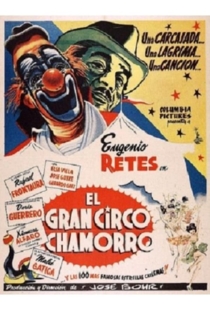
El último guapo
Mario C. Lugones
Lucho Córdoba, Lucy Lanny
Hercules, a poor individual earns his living as a walking street ad, carrying a gigantic advertising sign on his shoulders. His biggest concern is his daughter Leonor, who helps at home by working as a seamstress. Afflicted by the economic situation, Hercules gets a job as a casino watchman. There he must face a trio of mobsters and a kleptomaniac baroness who tries to seduce him with her vampire airs and whom Hercules ends up falling in love with.
El último guapo
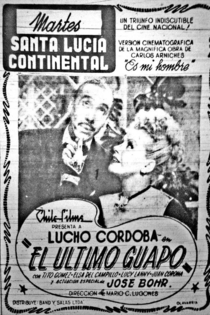
Mis espuelas de plata
José Bohr
Arturo Gatica, Lucy Lanny
The owner of a ranch pretends to a woman who is in love with a young blacksmith and spur craftsman. Because of his jealousy, the owner threatens the young man to pay a high mortgage to continue living on his ranch.
Mis espuelas de plata
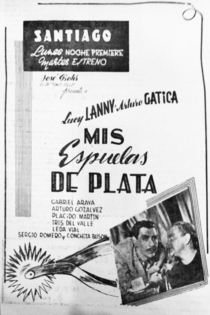
P'al otro lado
José Bohr
Ana González, Tita Merello
Desideria, a servant girl, dreams of traveling to Buenos Aires. Incredibly, Blas Pastrana, a relative of her employers, is dying in Argentina and expressly asks them to travel with her. When he arrives at his deathbed, he says that he inherits everything to the employee, confessing that she is his daughter, but on one condition: that in less than two weeks she gets married. Her employers try to convince her to marry the son of the family, Jorge, but Desideria is interested in Tito, a nice porteño. Everything ends in a surprise ending.
P'al otro lado
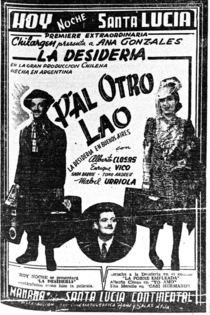
Rogue of the Rio Grande
Spencer Gordon Bennet
Myrna Loy, Walter Miller
El Malo, notorious Mexican bandit, forces the Mayor of Sierra Blanca, Seth Landport, to open the safe and turn over to him 2,000 pesos, which the bandit gives a promissory note for to the Mayor. Seth rushes to the cantina where Sheriff Rankin is drinking, and the sheriff posts a reward for the capture of El Malo. El Malo informs his men of the reward. The bandit and his sidekick, Pedro, visit the cantina where Pedro resumes a former acquaintance with Dolores, while El Malo has his attention directed to a tango being performed by Carmita. El Malo pushes her dancing partner aside and finishes the dance with Carmita. Since Seth's description of him is not accurate, El May visits the sheriff and promises to deliver the wanted bandit to the cantina the following night. THe following morning, El Malo and Pedro depart, and, halting their horses on a hill, view the stagecoach being held up by a trio of outlaws.
Rogue of the Rio Grande
